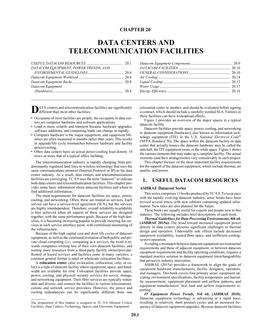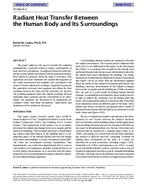The object of this paper is to question the need for refrigeration in comfort air conditioning, and examine whether satisfactory conditions for thermal comfort could be maintained if it were eliminated in certain situations. With the continuing need to conserve energy, engineers must re-examine the solutions previously considered satisfactory and seek alternative designs that reduce energy consumption and perhaps dispense with some unnecessary and expensive plant. Most commercial buildings are occupied for approximately one third of the day each week day and this period normally covering the time of peak heat gain. Again during another third of the day, the early hours of morning, the ambient air temperature is almost invariably lower than the mean temperature necessary to maintain thermal comfort. If it were possible to store this “free cooling” and use it during the occupied period then, it is suggested refrigeration could be eliminated. The amount of cooling available depends on the fall of temperature overnight and, fortunately, during periods of peak heat gain, diurnal variation of temperature is greater due to the cloudless sky overnight. Once the cooling capacity has been obtained, it is of course necessary to store it and release as required. The cooling capacity could be stored in water but that large quantities of water would be necessary. to assist storing the water at a lower temperature, be consumed as a conventional system the temperature differences are so small Again a refrigeration machine could be used but almost the same amount of energy would Since the temperature difference between the overnight air and the thermal storage medium is very small, the total thermal capacity must be great in order to absorb all of the heat gains the following day. It seems that the only practical solution would be to use the building fabric itself. But how can the fabric be cooled without refrigeration? How much cooling should be allowed and how can the rate be varied?
The fabric can be cooled relatively easily by ventilating the building overnight. The difficulties are predicting how much cooling is necessary and, even more, to predict how the air temperature will vary during the occupied period if the building fabric is simply allowed to absorb the heat gains during the day.
The calculations necessary can be carried out by several methods, but have in common the need for a dynamic model of the building that incorporates the effect of thermal storage by the building fabric (thermal capacity). The temperature calculated can then be comp~red with the requirements for thermal comfort.
Product Details
- Published:
- 1978
- Number of Pages:
- 11
- File Size:
- 1 file , 610 KB
- Product Code(s):
- D-AL-2510
- Note:
- This product is unavailable in Russia, Belarus


